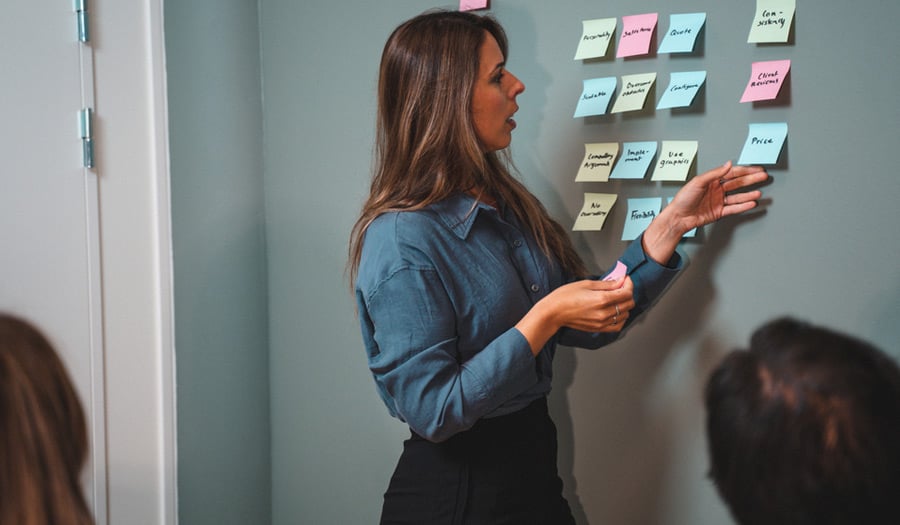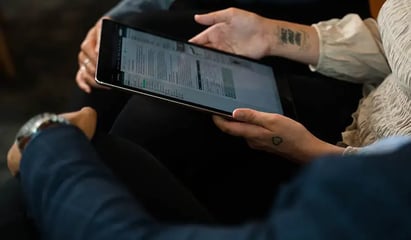Yet, preparation is always a challenge. Both RFPs or Tenders and proposals are large, complex documents that demand time, accuracy and in-depth experience to be successful.
In this blog, we’ll explore the importance of bid planning from both the client and the vendor perspective, discussing key strategies and best practices to ensure a successful, win-win outcome.
Benefits of Bid Preparation
Tired of losing out on lucrative contracts? Effective planning is essential for funding and securing new projects. By investing time and effort into thorough pre-RFP or Tender and proposal efforts, both clients and vendors save time and increase their chances of success. Here's how.
Client Benefits
Investing time and effort into prepping can significantly improve the accuracy and quality of RFPs or Tenders. The result increases the chances of finding the right vendor and executing a successful project.
A well-executed process helps clients by:
- Increasing Accuracy: Clients elicit more specific and informative proposals from vendors.
- Saving Time and Resources: Clients help vendors understand needs more quickly for a more efficient procurement process.
- Improving Proposal Quality: Clients drive competition, encouraging vendors to tailor their solution to submit higher quality proposals.
- Improving Decision-making: Clients secure the information they need to make informed decisions about selecting a vendor.
- Reducing Risk: Clients avoid misunderstandings between clients and vendors.
- Boosting Evaluation: Clients find what they are looking for, making it easier to evaluate and score proposals.
Vendor Benefits
Investing time and effort into prepping is essential for vendors who want to increase their chances of winning and growing their business.
A well-executed process helps vendors by:
- Increasing Chances of Winning: Vendors better tailor their proposals to the client’s specific needs, increasing their competitiveness.
- Demonstrating Expertise: Vendors better showcase their knowledge, expertise and qualifications.
- Save Time and Resources; Vendors avoid wasting time and resources on RFPs and Tenders that are not a good fit for their business.
- Engaging Decision-makers: Vendors engage clients and influence the RFP or Tender.
- Improving Quality: Vendors create more compelling and persuasive proposals.
How to Prepare for the Bidding Process
In the period leading up to the formal procurement process, both the client and the vendor will be preparing, each in their own way.
Client Planning
The client typically begins by tasking the procurement department with the job of preparing the RFP or Tender document and selecting the vendor. This procurement, or purchasing, process is based on an approved process for managing and auditing compliance with regulation, legal and financial controls. It includes a method for evaluating and scoring proposals to ensure a fair and competitive outcome, as well as a competitively priced supply of the products or services.
Before preparing the RFP or Tender, the procurement department will take proactive steps to position themselves for success. Here’s a breakdown of the process.
- Key Stakeholder Communication: The procurement team will work closely with legal, finance, health and safety, human resources, environmental, operations and IT departments to ensure compliance and identify and mitigate risks.
- Identify Strategy: The procurement team will work closely with their internal client, or the issuing department. Together they will determine the products or services and formulate a strategy.
- Vet and Approve Strategy: There are a number of factors that will influence and control the strategy and optimize results, including market conditions, pricing, and timing.
- Identify Prospective Vendors: The team will either develop a list of prospective vendors or prepare the selection criteria that will be used to determine which companies can participate.
- Define Evaluation: To support decision-making, the client will define the evaluation model used to compare proposals and pricing on a level basis. For example, this might be some what-if scenarios to model the effect of changes to the volume of work, time period or procured work-scope.
- Prepare Documents: Once the strategy is formulated, and approved by management, the work of preparing the RFP or Tender documents begins. This will involve detailed consultation with involved internal parties to prepare the documentation that will be issued to potential vendors.
Next stop: issuing the RFP or Tender.
Vendor Planning
The vendor typically begins by tasking sales or business development with identifying client opportunities, or future opportunities that fit business goals, and building relationships with those clients. This pre-RFP, or capture management process, is based on an approved methodology for managing and capturing the opportunity. It includes a method for evaluating the RFP or Tender to make an informed go/no go decision.
Before the RFP or Tender is issued, the capture team will take proactive steps to position themselves for success. Here’s a breakdown of the process.
- Research and Identify: Determine industries or sectors where your products or services are most applicable and identify future opportunities and clients, and track their progress.
- Client Networking: Identify and build relationships with client decision-makers and influencers to better understand their needs and boost your reputation and qualifications.
- Gather Information: Gather and analyze relevant data, including market, industry, client and competitor, as well as incumbent, information.
- Develop the Capture Strategy: Define specifically how the business will win the specific contract, project, or opportunity, as well as the rules governing the go/no go discussion and decision.
- Involve Proposal Team: Bring the proposal team into the loop early, helping them to understand the capture strategy and articulate the proposal execution process through the win strategy, which governs proposal development.
Next stop: go/no go and proposal development.
Suggested content



Pre-Bid Best Practices
By leveraging best practices, both the client and the vendor benefit from a more efficient, effective, and successful process.
Client Best Practices
By following these best practices, clients can ensure that their RFPs or Tenders are clear, concise, and effective in attracting the best possible vendor proposals.
- Improve Document Flow: Evaluate and refine the RFP or tender document to ensure a logical flow that helps the vendor navigate.
- Boost Document Readability: Evaluate and refine the RFP or Tender document to ensure it is easy to understand which promotes more concise proposals.
- Review Evaluation Criteria: Ensure evaluation criteria is clear and concise and provide vendor guidance, and prep evaluators.
- Refine Scope of Work: Continue to develop and refine the Scope of Work, specifically considering what vendors might ask about.
- Prepare Questions: Identify specific questions and answers vendors might submit once the RFP or Tender is issued.
- Revisit Requirements: Discover if there are any requirements that would require investment in property, staffing, technology, etc.
- Leverage Collaborative Tools: There is a lot of information to gather and vet, and there are a lot of experts stakeholders to collaborate with. A centralized document collaboration platform makes this faster and easier, avoiding misunderstandings and version control issues that cause delays.
Vendor Best Practices
Once the RFP or Tender is issued, the vendor is prohibited from communicating with the client, their departments or individual representatives. All communications must go through official channels as described in the RFP or Tender, for example the procurement office.
Any attempt to circumvent this communication path is likely to be considered a breach of the RFP or Tender rules, and may lead to disqualification.
That said, the typical pre-proposal stage provides ample time for a number of best practices aimed at better positioning vendors for RFP or Tender success.
- Cultivate Client Relationships: Clients form opinions as they develop their RFPs and Tenders. Use this time to build and strengthen relationships, promote awareness and position your team as the preferred choice. Remember, there is rarely just one decision-maker.
- Gather Intelligence: Dig into the Scope of Work and requirements, and identify what the client worries about, and what they feel will make the project a success, as well as competitive intel for analysis.
- Influence the Requirements: Talk about the industry and similar project successes and failures. Look for ways to include requirements that give the client a competitive advantage, or avoid inclusion of things that would be a disadvantage.
- Conduct Regular Reviews: Periodically review the capture process to share information and intel, modify the approach, anticipate issues and risks.
- Craft a Well-Defined Capture Strategy: By gathering and analyzing the right mix of information and intel, this critical document articulates specifically how the vendor will capture the opportunity.
- Involve the Proposal Team Early: The sooner the proposal team is involved, the more time there is to develop the win strategy, or how proposal development will be executed to support the capture strategy.
- Leverage Marketing: Look for ways to be relevant to the client and their project, positioning the business as the preferred choice before the RFP or Tender is issued.
- Plan for the Long Haul: Capture doesn’t happen overnight. In fact, the most effective capture efforts begin a good 12 to 24 months before the RFP or Tender is issued. Get a head start now, because that’s what your competition is doing.
- Leverage Collaborative Tools: A lot of information and intel is gathered during the capture phase, and many experts are tapped as part of the discussion. A centralized document collaboration platform makes this faster and easier, avoiding lost email threads and confusion that causes delays.
By prioritizing preparation, both clients and vendors can position themselves for success in the competitive world of RFPs and Tenders. The client phase ensures the RFP or Tender communicates exactly what is needed so vendors understand and respond clearly and concisely. At the same time, the vendor phase ensures the proposal communicates the value proposition in a clear and concise manner, increasing the likelihood of success.
Remember, whether you are building an RFP, Tender, or Proposal, the name of the game is trust and mutual benefit. Everyone wants to work with people they can rely on and be successful. Learn more about tender response tools:









